10 Common Challenges Facing Industry in China

Are golden years gone for good for foreign industrial companies in China?
Cost-Effective Agency
KPI and Results focused. We are the most visible Marketing Agency for China. Not because of huge spending but because of our SMART Strategies. Let us help you with: E-Commerce, Search Engine Optimization, Advertising, Weibo, WeChat, WeChat Store & PR.
Good question.
Undoubtedly the opportunities waned. But opportunities linger for those willing to overcome the new challenges. If fact, there have always been challenges.
Remember that if you don’t take grab your chance, another one will take your market shares.
Surely Covid has been and continues to be a thorn in the flesh. China has seen the strictest lockdowns. Disrupting the worldwide supply chain, slowing down the economy globally.
Coupled with Chinese society’s intrinsic changes, new challenges emerged but also new opportunities.
China’s Industry Situation in 2022
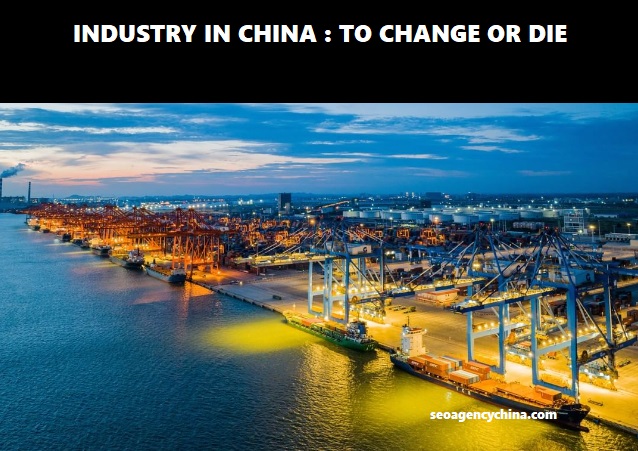
1- Cost increase
Raw materials
Most raw materials resources are getting scarce. Steel rebar saw its price increase from 1,600RMB/T in January 2016, to 5,700 RMB/T in January 2022. Lithium rose from 15,000 RMB in January 2018 to 42,000RMB in January 2022.
Recent political events are not helping. Each side is trying to secure its internal investments to secure its sovereignty and independence.
Labor cost
Over the last 10 years, the minimum wage increased by almost 80% in China (from 1450rmb in 2012 to 2590rmb/month in 2022). Even before Covid-19 comes into play. Many foreign factories moved their production to Southeast Asia for countries like Vietnam or India. Besides, many factories are seeing rising difficulties to find and keep their employees. Facing huge employee turnover.
On the bright side, employees are getting more educated and qualified.
2- Logistic is more and more expensive
The scarcity of containers at the beginning of the covid crisis saw record-breaking prices in history. Reaching skyrocketing prices. Led by sanitary measures. Companies trying to secure their supply chain. Not helped by the shortage of new container construction in China…
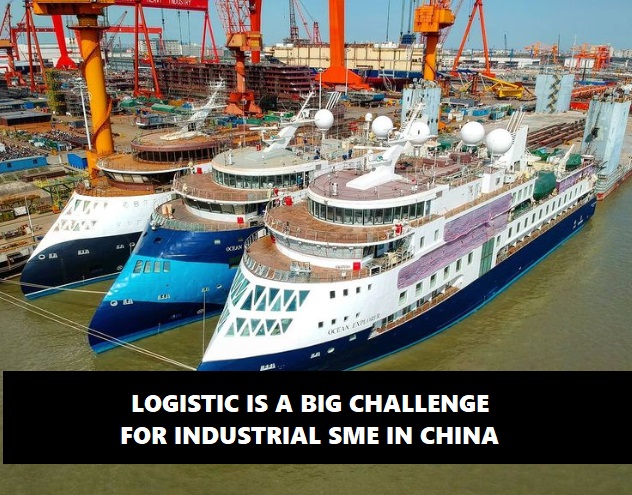
Even though prices slowly dropped, prices are not likely to get back to normal soon considering current energy tensions in Europe.
Make sure to carefully consider the logistic prices in your offer. And integrate the fact that it might still not be stable any soon.
3- To survive, you must upgrade to a higher range of products
There are 1 million factories in China. Don’t be a simple needle in a haystack, you won’t be competitive nor successful. There are plenty of random, low and mid-range factories.
To succeed, especially as a foreign factory. You need to stand out. Differentiate by your high range.
Many Chinese investors are buying European factories. It’s no secret that they are looking to acquire know-how. But also are looking to increase their industry’s standards to the highest quality possible.
4- Bring services to their products
Even before considering stepping into China, you need to make sure that you can meet the consistent service level expected by the buyers.
In China, no matter the area you can experience outstanding and super reactive customer service 24/7.
Always do more than expected, and be distinguishable by your customer experience.
Mostly make sure to have technical or customer support available any time of day and night. Most factories never stop and need constant support to avoid any production line to be stopped.
Make sure you can insure the support in Chinese only. Despite the education level improvement, many buyers don’t speak English.
5- No more trade fair in China in 2022
Covid disrupts the venue of most trade fairs globally. In China, they tried to compensate by holding online versions, e.g.: Canton Fair went online.
These trade fairs were the main way for factories to get clients.
Now that Covid seems to be part of the past in most countries, they return offline.

But in China, borders remain closed. And recent outbreaks coupled with strict anti-epidemic measures repelled buyers to attend offline fairs.
Instead, it encouraged, even more, the acceleration of the digitalization of professional buyers’ behaviors. They are getting online only to find suitable suppliers.
6- Automation of the production
4.0 Industries are rising. Facing increased costs of raw materials, and labor. Problems to recruits laboring hands. The tendency for automation is extending to more and more industries.
Factories are looking for solutions to rely the least possible upon human intervention.
But also, to optimize their productivity and reduce their production costs. Facing fiercer and fiercer competition.
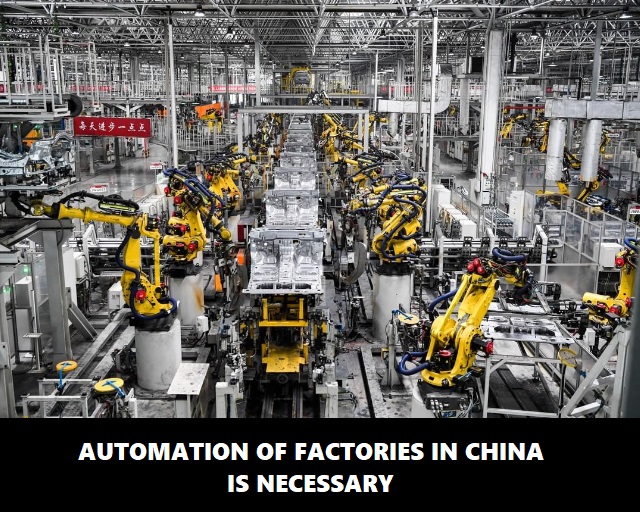
7- Using the internet to find clients aka Lead Generation
Stop using army of sales team or participate to trade fair.
Learn from others’ mistakes. Many industries step into China investing in a commercial team. 1 year later, with no results, they are putting pressure on the commercial team. As a result, in a few weeks, only every salesperson resigned. Unfortunately, that’s a pretty common pattern.
Digitalization is everywhere and it applies to every business in China.
The most efficient and economical way to find customers nowadays in China is to get online.
Buyers are young. They don’t give any attention to calls and emails received from salespeople. When they have a need, they will not wait for a commercial or a trade fair. They will check online on the Chinese internet (Baidu). They will check in Chinese only.

So be sure to have a Chinese-only website. Localized website and hosted locally (to avoid any firewall blockage).
And to make sure to have a performing ranking, make sure to get an SEO (search engine optimization) specialist. It will help your site to be found easily on the first page of Baidu. Consequently, receiving all the requests from all Chinese buyers that looked for your area of expertise.
8- Work on E-reputation
Buyers have no experience and no network, so they will check the online reputation of every new suppliers.
As a new factory or company in China, you will be investigated by your potential buyers.
Despite some improvements, China still sees many fake brands, factories, and multiple scams.
Buyers will mature carefully their actions and will make sure that you are a reliable partner.
To do so, they will check online what people say about you.

Either their peers on professional forums say or specialized online press.
“But I already have a very good reputation in my current markets” you will say.
That will not help you in China. If you have made no entry strategy in China so far, you will be completely unknown to the market and buyers. You have to build a new reputation dedicated to the local market.
Don’t auto-promote yourself, nobody will ever believe you.
To create trust, you must make sure people build your reputation. Buyers only rely on word of mouth. With ultra-digitalization, the most effective way is to focus on your online reputation.
Make press release (Chinese buyers read and trust their media). And make sure professionals talks positively about your products and services.
9- Using social media to create awareness
You don’t use FB, Instagram, or Twitter on your markets to reach your customers.
For China, you may consider things differently.
Social media in China are even more ubiquitous than it is elsewhere.
Number one in terms of users is Wechat. WeChat serves so many purposes for both private and professional uses. Not having it, is like not having a wallet/identity.
WeChat is not only used as chat (replaces e-mails), call app (replaces phone calls), and business card…but also has a plethora of other uses for companies.
WeChat offers companies the possibility to get a “website”. A medium to communicate with customers but also to replace the classic newsletter.
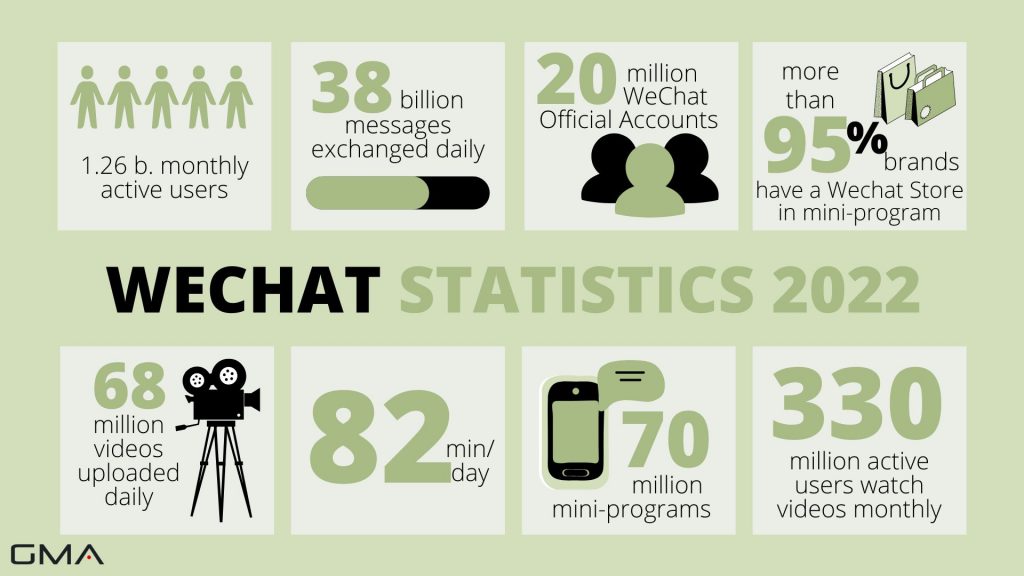
As e-mail use almost disappears in China, WeChat is a perfect medium. To keep in touch with your customers or future customers. To share some insight into your innovation, products, and recommendation. It is perfect to nurture your prospects and engage with your customers.
Another interesting platform seeing rising interest in the industrial sector is Weibo.
Weibo is considered the Chinese Twitter. It offers the possibility to share videos, news about your industry. And create awareness to a wider industrial audience. If interested in your products they can contact you directly via an online form on the app.
10- Study B2C or B2D option with e-Commerce
B2B transaction value of e-commerce rocketed from a mere 6.25 trillion RMB in 2012 to an astonishing 29.11 trillion RMB in 2021.
Currently, almost 2/3 of professional buyers use online tools to proceed with their purchases.
Needless to say, B2C online buying habits rub off on B2B buyers. The Covid only accelerated the behavior. It will be such a pity not to get your slice of the cake.
Just as for B2C options, B2B companies have 3 main options to sell their products on e-commerce platforms:
Having your own branded e-commerce shop: This option will require a bigger investment. That will require you to already have your customer database. But can be a suitable option to propose to your customers their own space, with personalized pricing.
Generic platforms: Gongpinyouxuan 工品优选 by JD, 1688.com by Alibaba… These kinds of platforms are dedicated to any B2B company. Where you can any kind of products, from trashcans to any heavy-duty types of machinery.
Vertical platforms: refers to all the e-commerce platforms specialized by industry.
E.g.: MRO (maintenance, repair, operation) Zhenkunhang振坤行, electrical (OFweek 维科王), chemicals(摩贝Molbase), pharmaceutical (药师帮yaoshibang) agriculture(大丰收 dafengshou), steel(招贴 Zhaotie)…
If you are the kind of crazy entrepreneur craving challenges, then the Chinese market is for you. Be sure that you will never get bored and that your intellect will be constantly stimulated. You will need to adapt to this ever-changing environment.
And if you need some support, you can drop us a message. We will be glad to discuss your project.
WE HAVE EXPERIENCE IN B2B IN CHINA

EMAIL US, WE REPLY WITHIN 24H




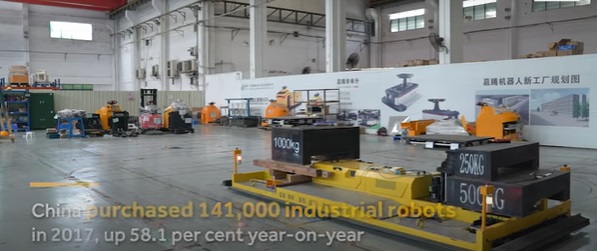

More talking, & discussion on this linkedin post.
https://www.linkedin.com/posts/sp511400_china-industry-challenges-activity-6993084715033382912-dNEE?utm_source=share&utm_medium=member_desktop